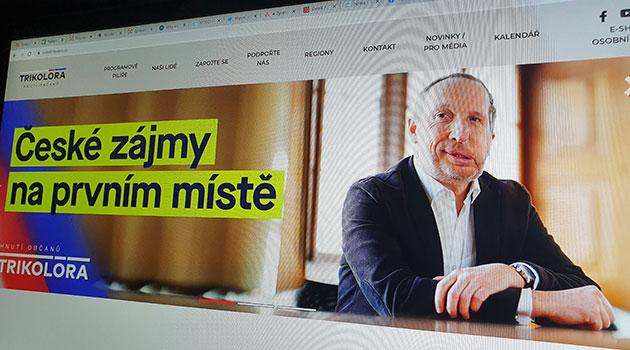Czech lower house supports first reading of bill to criminalize deletion of vulgar posts from social media

The Czech Chamber of Deputies has supported a bill to criminalize limiting freedom of speech on public social media. Administrators or operators of such platforms would face up to three years in prison, or a ban on activity, or a fine for deleting users’ posts, according to a bill put forward by a group of MPs led by Václav Klaus, Jr (Tricolor).
After making it through its first reading, the bill is now being assessed by the Constitutional Law Committee in the lower house. Klaus, Jr says the amendment to the Criminal Code is endeavoring to prevent censorship.
“I want to defend freedom of speech and democracy and to not allow these assaults by the new left to grow out of all proportion,” he said. As for the Pirate Party, none of its members pushed to suspend discussion of the bill until the approval of solution to this issue, and no Pirate MPs proposed that other committees also review the amendment.
Czech MP Tomáš Martínek (Pirates) did warn that if the amendment is adopted, it will not be possible to delete vulgarities from social media, for example. The new crime called “disruption of freedom of speech” would apply to social media platforms with more than 100 000 users.
According to the bill, it would become a crime to unjustifiably remove or otherwise render inaccessible social media posts about questions of public interest that do not violate Criminal Code regulations, international agreements or good morals. To qualify as a crime, the intervention would also have to be undertaken with the intention to burden or thwart free public discussion.
Less serious cases of “disruption of freedom of speech”, including ones committed out of neglect, would just be misdemeanors, according to the amendment. Individuals running social media platforms would face up to CZK 500 000 [EUR 19 000] in fines, while entrepreneurs and firms would face fines of up to CZK 50 million [EUR 1.9 million].
According to the submitters of the bill, who come from seven of the 10 clubs in the lower house, the operators of social media platforms have been introducing internal rules regarding the admissibility of the content of posts that frequently exceed lawful limitations on freedom of speech. Deleting such posts or blocking users in such cases contravenes the Charter of Fundamental Rights, in the lawmakers’ opinion.
The introduction of this new felony and misdemeanor offence is intended to prevent the operators of social media from “arbitrarily or preventatively” restricting information and opinions that do not exceed legal boundaries. The extraordinary session of the lower house that was convened on 29 April closed with the first reading of this bill and its passage into committee.
